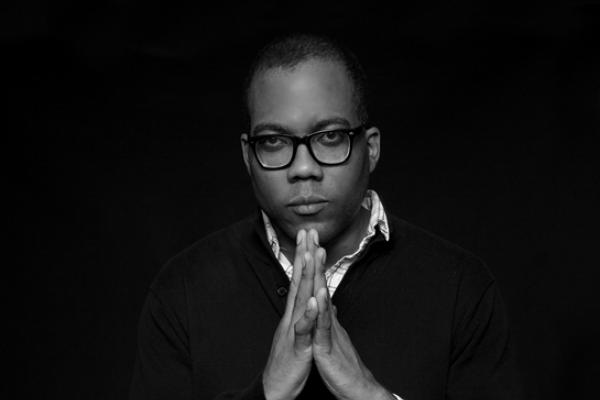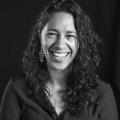Bio: Jimmie Briggs is an award-winning journalist and author of Innocents Lost, a book giving voice to child soldiers. In 2009, he co-founded the Man Up Campaign, a global effort to engage youth to stop violence against women and girls, and currently serves as executive director of the U.S. branch of Leave Out Violence (LOVE).
1. Let’s talk about LOVE. What issues does your organization address? LOVE’s focus is to engage young people who have been affected by violence of all kinds. This includes not only gender-based violence, but also issues such as gun violence, witnesses of domestic violence, and trauma- processing in schools where violence is the reality. LOVE uses media arts coupled with a trauma-informed response. We have a social worker for one-on-one counseling, and our teaching artists use media arts to provide pathways for young people who have been affected by violence—survivors and witnesses, even perpetrators—to express their voice and ultimately to process their pain, their trauma, and sometimes their guilt from the violence.
At the same time, LOVE creates a stage for them to speak about their experiences and advocate among their peers about conflict resolution and violence prevention. The arts offer a way to heal and process the violence you’ve experienced, but also for you to reach your peers and mitigate violence from happening in your schools, your home, and in your communities.
2. What is LOVE seeking to do for the young people in the program? As a journalist I had the opportunity to focus on trauma, specifically. One of the things I discovered, especially in urban communities, was post-traumatic stress. There are thousands of young people in this country who don’t have PTSD, but they do have everyday stress. There’s no “post” to it, because the trauma never goes away. Those are the young people I’m trying to reach. We have young women that cut themselves because of trauma and young girls who are survivors of sexual violence at an early age. And these young men, they are open wounds. Their journeys don’t allow them to physically escape the trauma they are forced to endure. But through the peer mentorship, counseling, support, and services we offer them, there can be a spiritual and mental escape from that trauma.
3. What else do you do with them? We’re also working with alternative justice programs in New York. Part of that curriculum is teaching teens how to diffuse certain situations and to mediate, so they are not involved in physical altercations. There’s a restorative justice element as well. Youth victims and survivors of violence and trauma are taught that sometimes they need to talk to the perpetrator about the consequences of their actions.
4. Where is LOVE headed next? I want to reach more students, not just in New York but Newark as well. We want to reproduce our model and really get it to a place where there’s vigorous reporting and accountability, internally and externally. Then it can be replicated nationally. I want LOVE U.S. to be in Chicago and the DC/Baltimore area, and Atlanta, and so forth. The approach of LOVE is one that would be accessible to a lot of people across the country.
With all the things that are happening right now with young people, specifically around trauma, violence, and discrimination, there’s cynicism. As a person of faith, I think it’s critical that youth have the opportunity to learn from and ally with leaders from other faiths, from other economic backgrounds, ethnicities, and races. For most of them who never leave their borough, never leave their block, never leave their corner, never leave their city, one of my main goals is to open up the aperture so they can see there’s a bigger world out there and bigger opportunities. I want to take away the boundaries on their imaginations. Show them what’s possible.
—Interview by Lani Prunés

Got something to say about what you're reading? We value your feedback!

